On June 22nd 1999, the United States Supreme Court made a monumental decision in the case, Olmstead v. L.C., to uphold the rights of people with disabilities. This case came about when two women, Louis Curtis and Elaine Wilson, filed a lawsuit under the ADA for release from a psychiatric hospital. Both women struggled with mental health and developmental disabilities and were voluntarily admitted to a psych unit. Medical professionals recommend that both women be moved to a community based program, but they remained confined in the hospital for multiple years after treatment.
The court ruling from their case required states to eliminate any unnecessary segregation and institutionalization of individuals that could benefit from community-based services. The Supreme court said that this decision reflected two evident judgments. The first being that, “institutional placement of persons who can handle and benefit from community settings perpetuates unwarranted assumptions that persons so isolated are incapable of or unworthy of participating in community life.” The second judgment explained by the Supreme court is, “confinement in an institution severely diminishes the everyday life activities of individuals, including family relations, social contacts, work options, economic independence, educational advancement, and cultural enrichment.” This ruling continues to push reform in public mental health services across the United States.
The Importance of the Olmstead Decision
The Olmstead decision was cornerstone in that the court viewed mental health conditions and substance abuse disorders as a disability and pushed for the rights of those individuals. Community is important for everyone, especially those with mental illness or substance abuse disorders that may already be feeling common symptoms of isolation or loneliness. Community can be described as a feeling of belonging with others and/or the shared attributes among a group of people.
Three of the most important aspects that community can provide for those struggling with mental health are as followed:
Support
Support is crucial for individuals struggling with mental illness as it provides a lifeline in tough times. Within a community, this support manifests in multiple ways, offering empathy, understanding, and practical assistance. The validation and empathy received from others who share similar experiences can alleviate feelings of isolation and shame, reinforcing that one is not alone in their struggles. Ultimately, community support serves as a stabilizing force, promoting resilience and enabling individuals to confront their mental health challenges with strength and determination.
Purpose
Purpose is important as it fills peoples lives with meaning and direction. Within a community, finding purpose can occur through various channels, such as involvement in support groups, advocacy efforts, or volunteer work focused on mental health. Engaging in these activities not only offers a sense of contribution and accomplishment but also connects individuals with like-minded peers who understand their journey. This shared purpose fosters a supportive environment where individuals can feel valued and empowered despite their challenges.
Belonging
Belonging offers a sense of acceptance, understanding, and connection. Within a community, belonging is fostered through shared experiences, empathy, and mutual support among peers who can relate to one another’s challenges. This sense of belonging reassures individuals that they are not defined by their mental health struggles alone but are valued members of a supportive network. It provides a safe space where they can express themselves authentically, without fear of judgment, and receive validation for their experiences. Ultimately, belonging within a community helps individuals feel seen, heard, and connected, promoting emotional well-being and resilience.
Exemplary Organizations Providing Community-Based Mental Health Services
AIM Center and Park Center, who have been in operation for many years, are two outstanding facilities that offer support for individuals with behavioral health disabilities. These pillar programs offer both an intentional community and community-based housing that embodies and reflects the Olmstead decision.
The AIM Center, located in Chattanooga, Tennessee, exemplifies its commitment to community living through its adherence to the principles of the Olmstead Act. By offering a supportive environment where individuals with Serious Mental Illness (SMI) can actively participate in society, the AIM Center promotes integration and inclusion. Through their Clubhouse model of psychosocial rehabilitation, members collaborate in meaningful activities alongside trained professionals, fostering relationships and developing skills that promote independence and recovery. This approach aligns with the importance of community, ensuring that members have a support system, a sense of belonging, and the opportunity to foster purpose. By emphasizing self-directed recovery goals, building supportive relationships, and preparing members to reintegrate into society, the AIM Center not only supports the personal growth and autonomy of individuals with SMI but also contributes to the broader goal of community-based mental health care as outlined by the Olmstead Act.
Park Center, located in Nashville, Tennessee, plays an important role in supporting community living by embodying the principles set forth in the Olmstead decision. Through its comprehensive services tailored to individuals with mental illness, substance use disorders, and those experiencing homelessness in Nashville, Park Center facilitates community integration and independence. By meeting individuals “where they are,” Park Center ensures access to essential services such as housing, psychosocial rehab, employment support, and outreach, all of which are essential for individuals to live and work within their communities. This approach echoes the Olmstead decision’s emphasis on providing services in the most integrated setting appropriate to an individual’s needs, thereby promoting dignity, autonomy, and meaningful participation in community life. By empowering individuals through support and resources, Park Center not only enhances their quality of life but also contributes to the broader societal goal of inclusive community living for all individuals, regardless of their mental health or substance use challenges.
At C2 solutions we are proud to be partnering with these outstanding organizations and are honored to be recognizing them on the 25th anniversary of the Omstead decision. To learn more about these organizations and to contact them please visit the links below.
